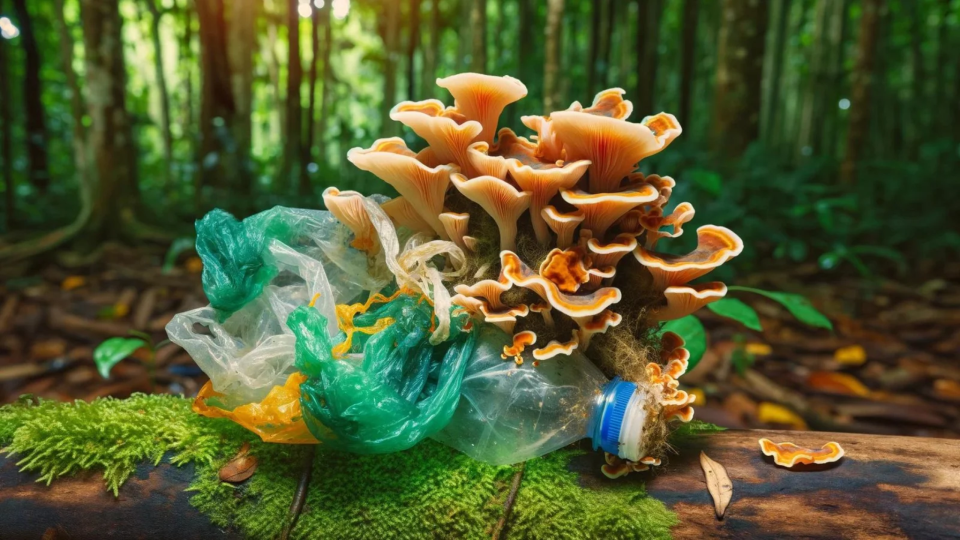Plastic pollution is one of the most pressing environmental issues as an estimated 8 million tons of plastic waste enter the oceans every year. Plastic waste, especially non-biodegradable materials like polyethylene (PE) and polyurethane (PU), poses a severe environmental threat, by polluting oceans, harming wildlife, and clogging landfills. Despite efforts to reduce plastic consumption and increase recycling, plastic waste continues to rise globally.
While conventional plastics take centuries to break down, the recent discovery by scientists at Lake Stechlin, Germany in plastic-eating fungi may offer a groundbreaking solution. The research claims that these fungi grow exclusively on particular synthetic polymers and can also form biomass. Depending majorly upon external conditions, such as temperature, micronutrients, etc these hungry plastic-eating fungi are a solution to efficiently address the drastically increasing plastic pollution.
The recent development is an add-on to the 2011 pivotal discovery that occurred when a group of students from Yale University identified Pestalotiopsis microspore in the Amazon rainforest. It was a fungus that can digest polyurethane under anaerobic (oxygen-free) conditions. Since then, it paved the way for further research into fungi species capable of degrading various plastic types.
These fungi digest plastic through enzymes that break down long polymer chains into simpler compounds, which the fungi can then use as an energy source. These enzymes are of particular interest to researchers because they could potentially be harnessed or synthesized on an industrial scale to manage plastic waste more efficiently. Beyond fungi, researchers are also exploring plastic-eating bacteria, such as Ideonella sakaiensis, discovered in Japan in 2016, which can degrade PET plastics.
However, fungi may hold a key advantage with the ability to thrive in diverse environments and break down multiple types of plastic. These discoveries are promising but need to overcome hurdles before being applied on a global scale. Further research is needed to enhance the efficiency and address ethical concerns regarding their potential impacts on ecosystems. The discovery of plastic-eating fungi represents a silver lining in the fight against plastic pollution. If successfully utilized, these fungi have the potential to transform the global waste management outlook to create a much cleaner sustainable future.

